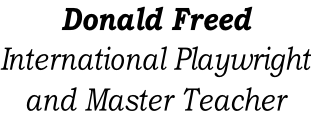CASSANDRA'S CURSE
By Anne B. Johnston
Doomsayers and soothsayers in the mighty echo chamber of the American media – like so many contemporary Cassandras – have made a univocal prophesy: the governments will be shut down; the Debt Ceiling will be detonated – "Apocalypse Now!"
You remember Cassandra? The raving redheaded prophetess who warned the ancient Greeks of their impending destruction. Except this time the situation is reversed. Cassandra was blessed with the gift of prophecy, but, a jealous Apollo cursed that gift. She was doomed to be correct in her predictions but never believed.
Today a dangerous number of the world's economists are suffering from a reverse "Cassandra Complex." This time, instead of being accurate but thought to be wrong, today's economic gurus are mostly incorrect but believed by the media and seemingly a majority of the public.
Talking Head One: "I predict first quarter 2014 for a rise in rates. Inflation won't be far behind. Bondholders beware."
Talking Head Two: "The economy is growing. More cash on company balance sheets than ever before – tech will lead the pack, just look at Apple!"
Talking Head Three: "If the S&P breaks 1800 we're in for a ride!"
Talking Head Four: "All indicators are negative. We've got unemployment, the Fed, and Miley Cyrus on a wrecking ball – batten down the hatches!"
How many of these self-styled experts can accurately forecast the future? The Livingston Survey finds that even notable economists get it right only 30% of the time. That's less than a coin flip, folks.
Why do we fall for this? Are we looking for answers to unanswerable questions? If so, does this mean there's nothing that academics and professionals can do for us?
Cassandra says, "Forewarned is forearmed." This does not mean that we should expect to know the future, or believe that anyone else can for that matter, but, rather, that we can be prepared with a good strategy. Any such plan begins with an understanding of your weaknesses and your assets. In the world of personal finance, new and even seasoned investors are often preoccupied with future predictions of the market before they have begun to organize and understand the current state of their own financial affairs. They have yet to explore where they are, but they're straining to know where they might go.
General Eisenhower expressed this well, "In preparing for battle I have always found that plans are useless, but planning is indispensable." Plans, like economic predictions, are difficult if not impossible to perfect. But, the process of planning can give us a framework to understand how the changing environment will affect us and ours. Furthermore, when we start by understanding where we are, and the limitations of prediction, we can restrict our efforts in ways where we can make a difference and avoid making bets or wild guesses where we cannot.
So, how can investors avoid a Troy-like fate in their financial affairs without knowing the future?
- They can limit risk (avoidance of leverage, over-concentration in investments).
- They can observe and monitor behavior (reactions, ego, greed).
- They can resist the herd ("They have Facebook stock, I want Facebook stock.")
- They can partner with specialists to inform them of the best deals and strategies in the current marketplace.
- They can build a plan based on thoughtful assumptions, and specific, measured –goals – backed up by adaptive alternative plans.
The good news is that we are not cursed like Cassandra. We are not fated to believe or disbelieve predictions when we hear them. We already know that there is no silver bullet or Oracle of Delphi these days. The best we can do is to collect the soothsayings we hear, consider the sources, and expect to reach our own conclusions.

